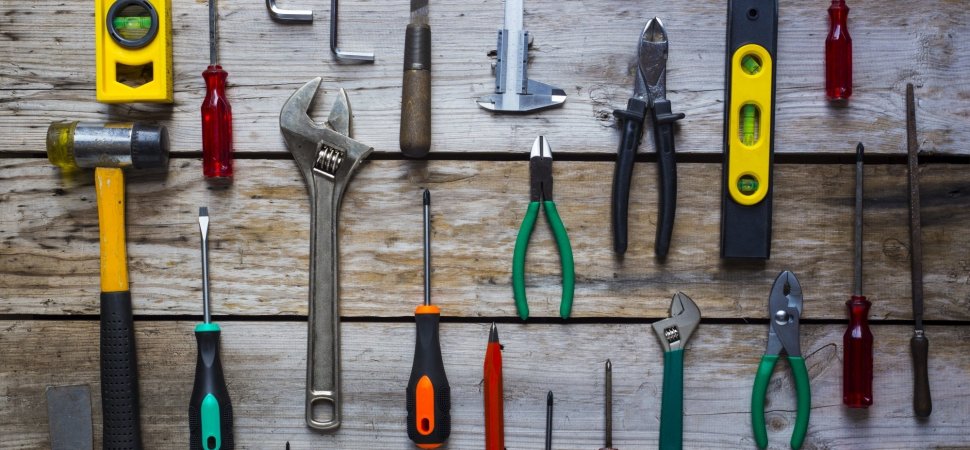Why asking about an applicant’s work tools can reveal their job aptitude.
Back when I was a kid working on constructions sites in Boston with my Nonno (that’s grandfather in Italian, by the way), he taught me the most important interview question you could ask an applicant. Nonno was an architect and contractor, who came over from Sicily with his dad and brother with their trowels and pails. Together, they built up a pretty good sized company over the years, including building the Prudential Tower in Boston and several of the buildings at Harvard and MIT.
My grandfather was a smart man but he had a family to feed and a business to run–he didn’t spend his days reading business articles on the most revealing interview questions or the three most essential questions to ask. Nevertheless, when it came to interviewing, he knew just what to ask.
People would walk on his job sites all the time, asking for work. Nonno would look the worker over and ask, “What’s your trade?” They’d answer something like framer, carpenter, plumber, etc. He would nod his head sagely, and say, “Great, let’s go take a look at your truck and tools.”
If they were a framer, the worker should have had heavy hammers, T-squares, levels, etc. If they were a finish carpenter, their toolset would have included little pin hammers, miter boxes, etc. However, if the worker said they were a framer and didn’t have a T-square, my Nonno would immediately know the applicant was blowing smoke.
These days, most of us don’t work on construction sites and we can’t look at someone’s toolbox to know if the applicant would be a great salesperson, content marketer, or finance manager. All we have to judge a potential applicant before we meet them is what the person writes on their resume and LinkedIn. So how do we know if a person is just blowing smoke or is really qualified for the position?
The one essential question I ask in interviews.
Recently, I was interviewing a candidate for a sales position, but the experience on their resume wasn’t matching up with what the candidate was claiming on LinkedIn (which is usually the more accurate of the two sources). Alarm bells went off. I felt this person might be overselling their skills. However, I couldn’t be sure unless I talked to the applicant in person. What could I ask to determine what their true job skills were?
I thought back to my Nonno and how he asked what an applicant’s tools were. I couldn’t look at the person’s toolbox, but by asking about the applicant’s typical work day, I could find out what computer programs they used and tasks they accomplished.
Ethnographer’s call these “descriptive questions,” because they can help you understand the extent of the worker’s “cultural” job knowledge.
So when I meet a candidate and want to know if they are truly qualified to be a salesperson or a content marketer, I ask, “Tell me about your typical day: where are you, what are you doing, what tools are you using?”
This is a great way to flesh out what the candidate really does–not the fluff the applicant gives you on the resume/LinkedIn.
As the candidate responds, I listen for the keywords about the computer programs they use and what tasks they accomplish in a typical day, just like my Nonno looked at the tools in a construction worker’s truck, and I know right away if the person is what they claim to be.
It’s also a good way to know up front, what someone can really do, especially if they are what they claim. Then you’ll know what tools they can use and how they can help your team.
Access Ken’s Inc. Column here: https://www.inc.com/ken-sterling/this-1-question-will-reveals-if-someone-really-qualifies-for-job.html?cid=search
